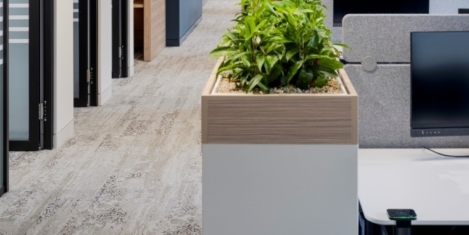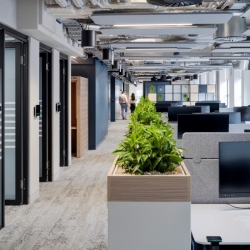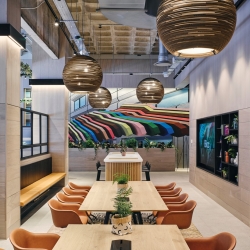To provide the best experiences, we use technologies like cookies to store and/or access device information. Consenting to these technologies will allow us to process data such as browsing behaviour or unique IDs on this site. Not consenting or withdrawing consent, may adversely affect certain features and functions.
The technical storage or access is strictly necessary for the legitimate purpose of enabling the use of a specific service explicitly requested by the subscriber or user, or for the sole purpose of carrying out the transmission of a communication over an electronic communications network.
The technical storage or access is necessary for the legitimate purpose of storing preferences that are not requested by the subscriber or user.
The technical storage or access that is used exclusively for statistical purposes.
The technical storage or access that is used exclusively for anonymous statistical purposes. Without a subpoena, voluntary compliance on the part of your Internet Service Provider, or additional records from a third party, information stored or retrieved for this purpose alone cannot usually be used to identify you.
The technical storage or access is required to create user profiles to send advertising, or to track the user on a website or across several websites for similar marketing purposes.
 There are 38 ways to win an argument. That is according to the 19th Century German philosopher Arthur Schopenhauer who laid them out in an essay called The Art of Being Right. We’ve probably added a few more since it was published in 1896, but whatever we’ve come up with since probably works on the same basis. Despite the essay’s title, the stratagems are not actually about being right at all, but about winning an argument. (more…)
There are 38 ways to win an argument. That is according to the 19th Century German philosopher Arthur Schopenhauer who laid them out in an essay called The Art of Being Right. We’ve probably added a few more since it was published in 1896, but whatever we’ve come up with since probably works on the same basis. Despite the essay’s title, the stratagems are not actually about being right at all, but about winning an argument. (more…)








 The pandemic has not led to mass unemployment as many feared, but has instead driven wider shifts that have increased employment among younger women, but pushed many men and older workers out of the labour market altogether, according to new research.
The pandemic has not led to mass unemployment as many feared, but has instead driven wider shifts that have increased employment among younger women, but pushed many men and older workers out of the labour market altogether, according to new research. 
 Whilst driving through Zürich in a hailstorm I passed a Mercedes with a plastic bin liner taped over a missing window. Two thoughts struck me. First: this must be the result of the owner locking himself out of the car, as car crime is a fictional event in Switzerland (bike theft is preferred). The second was how utterly pointless this flapping piece of plastic served as an attempt to seal the broken window.
Whilst driving through Zürich in a hailstorm I passed a Mercedes with a plastic bin liner taped over a missing window. Two thoughts struck me. First: this must be the result of the owner locking himself out of the car, as car crime is a fictional event in Switzerland (bike theft is preferred). The second was how utterly pointless this flapping piece of plastic served as an attempt to seal the broken window. 
 International law firm, Kingsley Napley, have recently moved to Twenty Bonhill Street, London. The new space has been designed with an ‘activity-based’ flexible working model in mind. This entailed creating a range of spaces which suit the various tasks that are necessary in a modern law firm.
International law firm, Kingsley Napley, have recently moved to Twenty Bonhill Street, London. The new space has been designed with an ‘activity-based’ flexible working model in mind. This entailed creating a range of spaces which suit the various tasks that are necessary in a modern law firm. 
 Research carried out by
Research carried out by 
 Due to the significant workplace technology changes brought on by the pandemic, more than half (53 percent) of employers plan extensive organisational transformation in the next two years.
Due to the significant workplace technology changes brought on by the pandemic, more than half (53 percent) of employers plan extensive organisational transformation in the next two years. 


 A new report ‘
A new report ‘
 A survey of hybrid-office and home-based UK workers gives insight for employers into some of today’s biggest needs for office workers to carry out their roles. 73 percent of UK workers believe that the provision of ergonomic work conditions, as well as support for their health, will play a bigger role when choosing a company to work for.
A survey of hybrid-office and home-based UK workers gives insight for employers into some of today’s biggest needs for office workers to carry out their roles. 73 percent of UK workers believe that the provision of ergonomic work conditions, as well as support for their health, will play a bigger role when choosing a company to work for. 












December 3, 2021
Menopause may amount to a disability under law in some cases
by Kathryn Clapp • Comment, Flexible working, Wellbeing